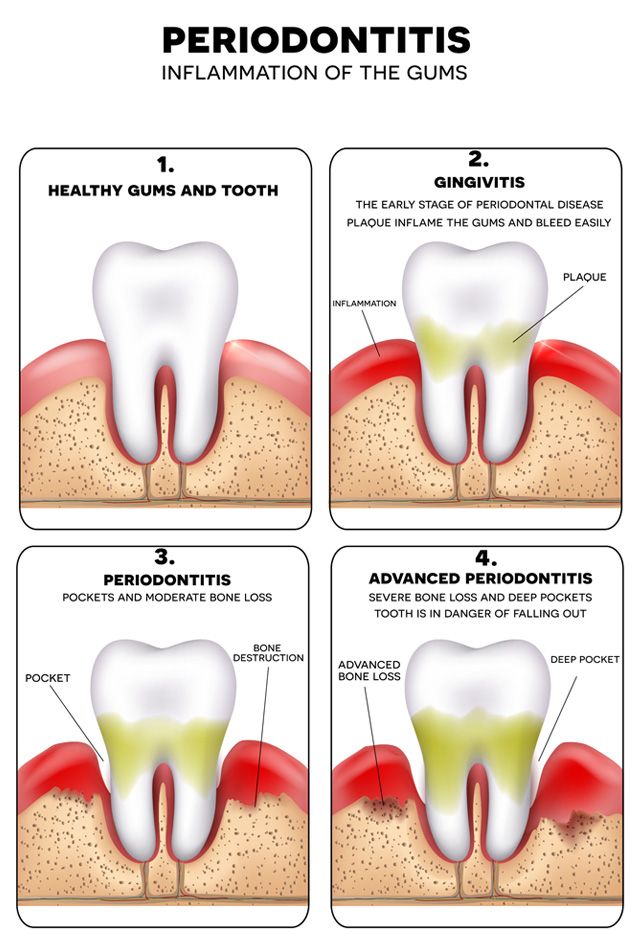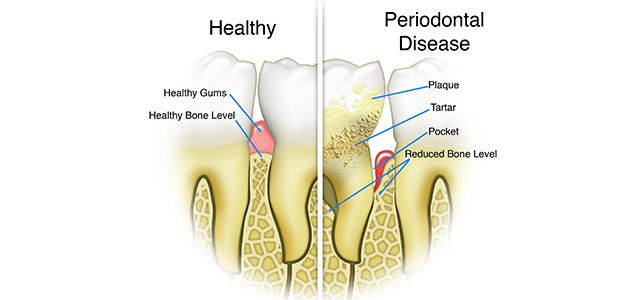So you’ve been told you have gum disease but you’re not really sure what that means. Gum disease can be broken down into two categories – gingivitis and periodontitis.
Gingivitis
This is the first stage of gum disease. It is the inflammation of the gums due to accumulation of bacterial plaque. This bacterial plaque collects around and underneath the gum line causing the gums to turn from pink to red. They can bleed, swell, be tender to floss or brush and often cause bad breath.
Gum disease is a normally painless condition that progresses slowly. If treated at this stage any damage can be reversed.
However, gingivitis can progresses to periodontitis if left untreated.

Periodontitis (Periodontal Disease)
Periodontitis is characterised by the permanent loss of bone around the teeth as a result of chronic gum inflammation. It can be caused by unsatisfactory removal of plaque, genetics, medications, current inflammatory diseases and is influenced heavily by smoking. Periodontal disease is the leading cause of adult tooth loss.
Bacteria under the gum line causes inflammation and swelling of the gums. The gums detach from the tooth creating pockets, where bacteria grows rapidly. If no professional treatment is undertaken (deep gum cleaning), the infection can spread resulting in bacteria colonies burrowing into the gum & dissolving the bone. This results in a loss of supportive structure, making the teeth loose with time and at risk of falling out.

Bacterial plaque hardens when combined with mineral rich saliva and turns into tartar/calculus. This hardened build up is impossible to remove with floss or a toothbrush. This is where we get involved and remove it with our specialised hand instruments and ultrasonic scalers which shatter the hardened calculus and flush out the infected pockets.
If gum disease is left untreated it can result in a loss of teeth due to bone loss. Loosing teeth can affect you aesthetically but more importantly affect your oral function (eg. chew, talk, swallow). To restore missing teeth you have the some options including a denture or implants. Both require a stable periodontal condition for a high success rate.
Research shows that having chronic gum disease can affect your general health. It can lead to complications with heart disease, diabetes, respiratory disease and pregnancy.
Further reading on periodontitis here:
